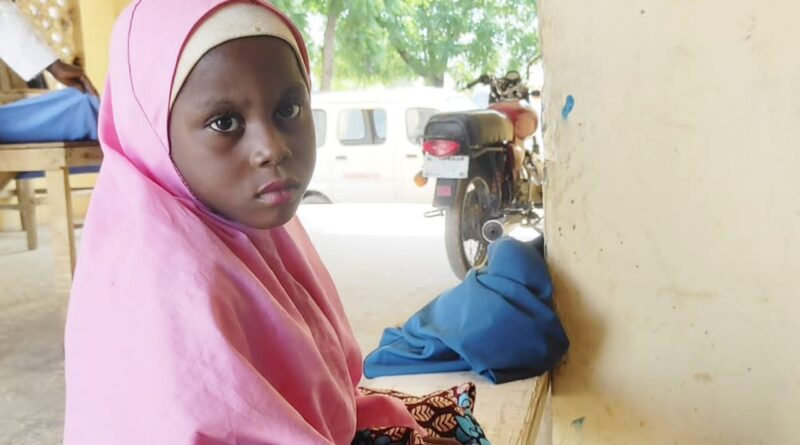2 Million Children In Nigeria Not Vaccinated Against Killer Diseases–UNICEF
The United Nations Children’s Fund (UNICEF) has disclosed that 2million children in Nigeria were not vaccinated against childhood killer diseases.
The UNICEF Chief of Kano Field Office, Mr. Rahama Rihood Mohammed Farah disclosed this at a media dialogue in Kano on routine immunization and zero dose campaign.
Mohammed Farah said poor immunization uptake was exposing children to high risk and avoidable death.
He called on the media in Nigeria to raise awareness of routine immunization against childhood killer diseases.
The National Immunization Coverage Survey Results have shown that over the years, Nigeria has made progress in Immunization coverage, however, it is also clear that gaps exist.
Mohammed Farah expressed worry over the increase in number of unimmunised children in Nigeria, saying that myths, disinformation, misinformation and rumours are among factors contributing to poor immunization uptake in the country.
Kano State Commissioner for Health, Dr Abubakar Labran Yusuf who wa at the event said the state government was committed to ensuring that all children in the state are immunized so that they would live healthy life and fulfill their full potential.
The Director of National Orientation Agency in Kano State, Alhaji Salisu Waziri Kutama, represented by Balarabe Yusuf Sanni said NOA Chief Orientation Mobilisation Officers (COMO) and other staff of the agency were regularly deployed to markets, motor parks, religious centers and other social gatherings to sensitise people of Kano State on the gains on of immunisation.
Kutama charged people of Kano state to ensure that their children are fully immunised so as to protect them against killer disease.
Speaking further, Mohammed Farah noted that Kano, Katsina, Jigawa have the highest number of unvaccinated children in the country and urged the state government to address the challenge.
He said immunization is the single, most cost-effective, and high-impact intervention which protects children against illness and death caused by vaccine-preventable diseases.
He lamented that despite proven safety, efficacy, and availability of vaccines, immunization uptake has not always been optimal.
His words “For instance, in the three states of the Northwest of Nigeria: Kano, Katsina and Jigawa, there are over 600,000 children who have not been vaccinated against childhood killer diseases.
“This closer to about 40% of the total unimmunized children in Nigeria. Over 300,000 of those children are in Kano State, representing 50 per cent of the three states under the UNICEF Kano Office. This situation is unacceptable and should be reversed urgently.”
Mohammed Farah said UNICEF when children don’t get immunized or when children have no access to immunization services, their basic fundamental right is not fulfilled.
He urged the media to raise awareness of the importance of Immunization by providing accurate information to caregivers, families, and communities.
He also urge traditional and religious leaders, community leaders, and civil society organizations to forge partnerships towards addressing the issue of unimmunized children in Nigeria.
He called on the governments of Kano, Jigawa and Katsina states and other states with zero-dose LGAs, to take concerted action to strengthen their primary healthcare system and ensure that an integrated package of primary health services are provided to families in one functional health facility.
He called Kano, Jigawa and Katsina state government to implement the Nigeria Primary Health Care Under One Roof Policy to ensure one-stop functional primary health care centre per ward, particularly those LGAs with unimmunized children.
Mohammed Farah also sought increased strategic interventions to address persistent gap in human resources and recruit additional skilled critical cadres of health workers, including vaccinators, Community Health Influencers and Promoters Services (CHIPS) agents for immunization demand creation.
He appealed to government to provide essential medicines and health commodities, infrastructure, electricity and water supply for quality integrated Primary Health Care service for the people.




